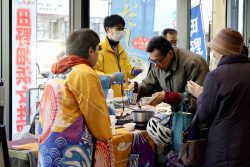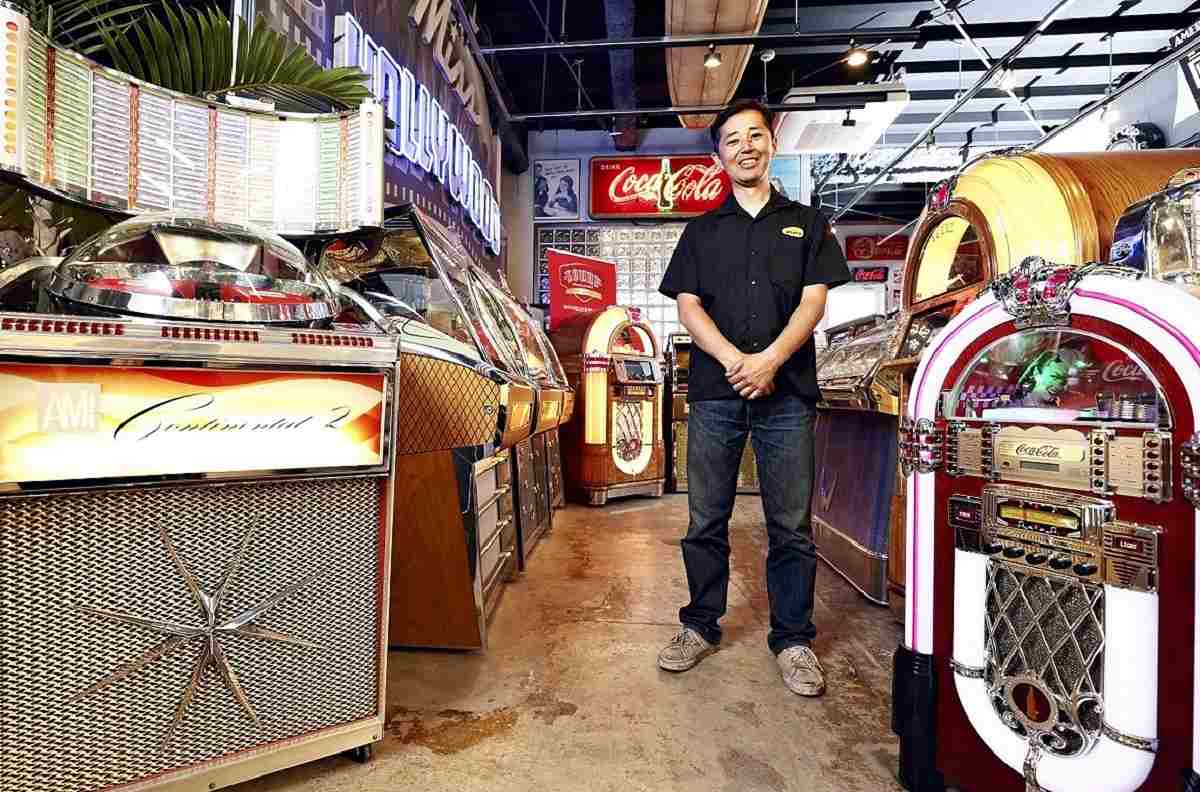
Kenichi Nagaoka, an employee of FLAT4, is seen surrounded by vintage jukeboxes and neon signs.
15:56 JST, July 19, 2023
Influences of American culture linger on to this day in the Honmoku district of Yokohama, where families of U.S. forces members lived for decades after World War II. One of the best examples of this can be found at the FLAT4 garage and jukebox shop, which sells these retro musical fixtures that were very popular in the United States well into the 1960’s.
As I opened the door, I saw neon signs shining inside the shop and I felt as if I were in an old film.
The jukeboxes displayed there are all vintage, including a classy wooden-cased model, a see-through, glazed one and a colorful jukebox that looks like an old arcade game machine. The prices range from ¥500,000 to around ¥2 million.
Jukeboxes were essentially vending machines for popular music. Customers would insert coins, select a song or two and enjoy their favorite music played on vinyl records.
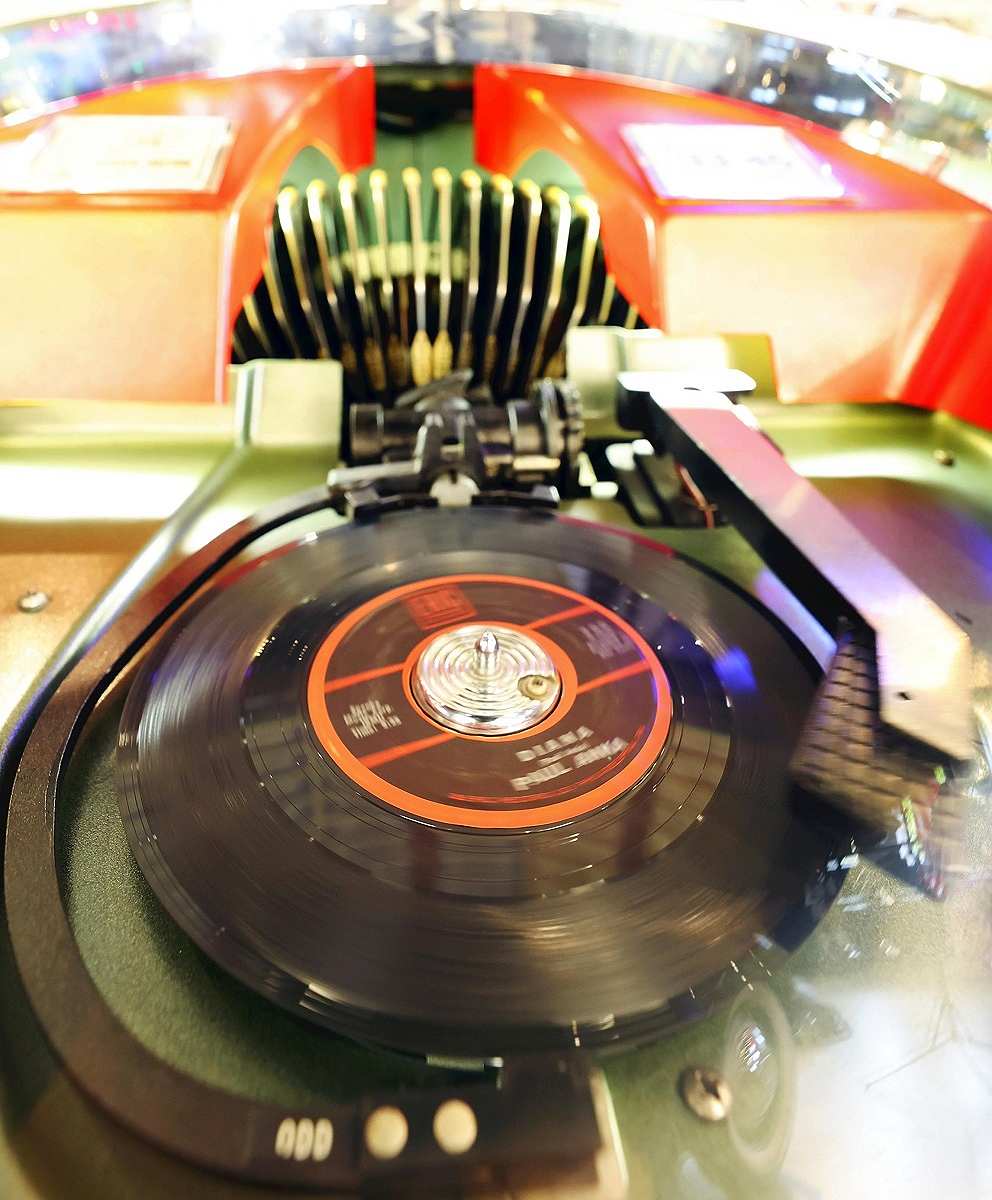
A jukebox transports a vinyl record to a turntable.
In the United States, bars and diners started installing jukeboxes from around the 1930s, creating a culture of drinking and eating while listening to music on demand. After the war, jukeboxes became popular in Japan and were installed in coffee shops, bowling alleys and other places. However, along with the decline of vinyl records, jukeboxes gradually disappeared.
FLAT4 originally dealt in parts for foreign cars, and it started to sell jukeboxes in 2010. When then store president Takashi Komori put on sale about 200 jukeboxes that he had collected over many years, they caught the attention of restaurants and other shops that wanted to re-create a retro atmosphere.
“Every jukebox is elaborately decorated, like an artwork,” said Kenichi Nagaoka, 46, an employee of the shop.
Because there are still plenty of jukebox fans, many advanced models have appeared, such as ones that play CDs and wireless interface models that allow for music playback from a smartphone.
“Carefully listening to music, not as a background to other activities, will allow listeners to discover something new and spend a relaxing time,” Nagaoka said.
I pressed a button on a jukebox made in the 1960s and watched in glee as a vertically stored EP vinyl record was picked up and transported to the turntable. After the needle was placed on the record, my surroundings were filled with the soft sound of tube amplifiers.
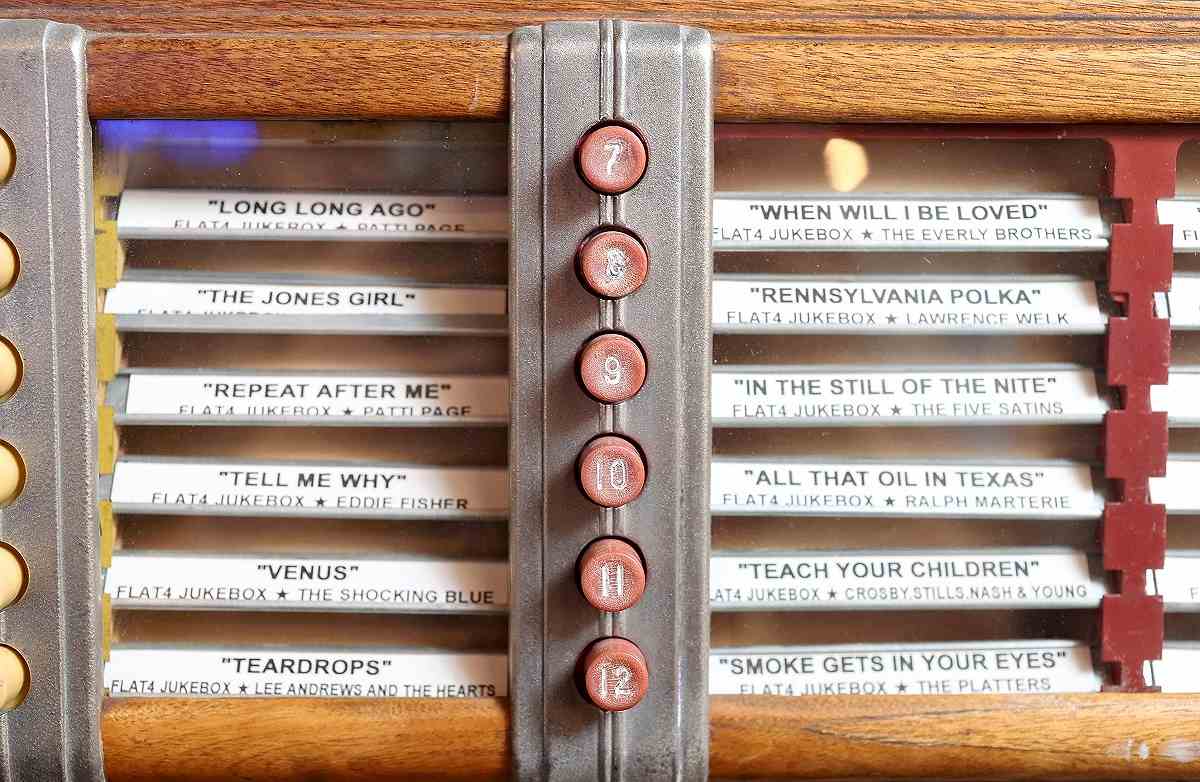
Panels showing the names of songs
Inside the magnificent box, which is filled with the dreams of people living in older times, the record was spinning like a galaxy. The scene filled me with the desire to own this jukebox, but unfortunately, it was not for sale.
So instead I bought a miniature, novelty version and brought it back home with a sense of satisfaction.
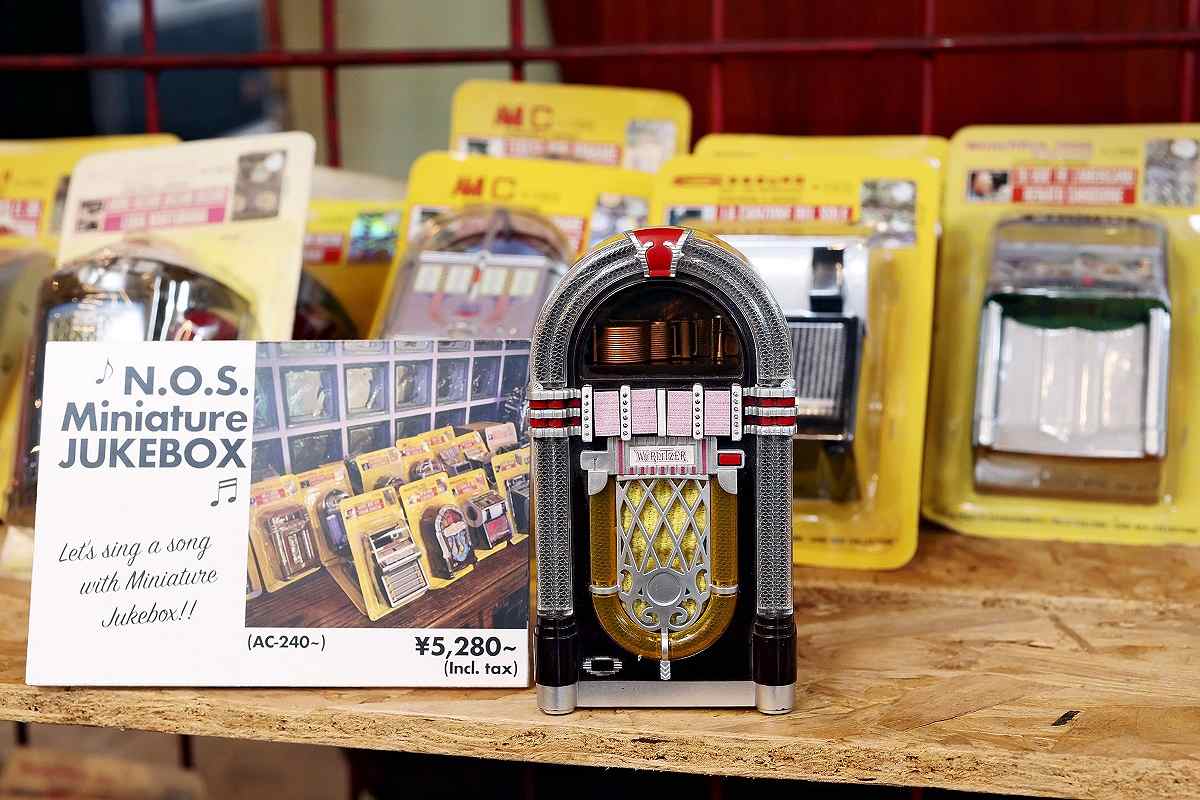
A miniature, novelty version of a jukebox that costs ¥5,280
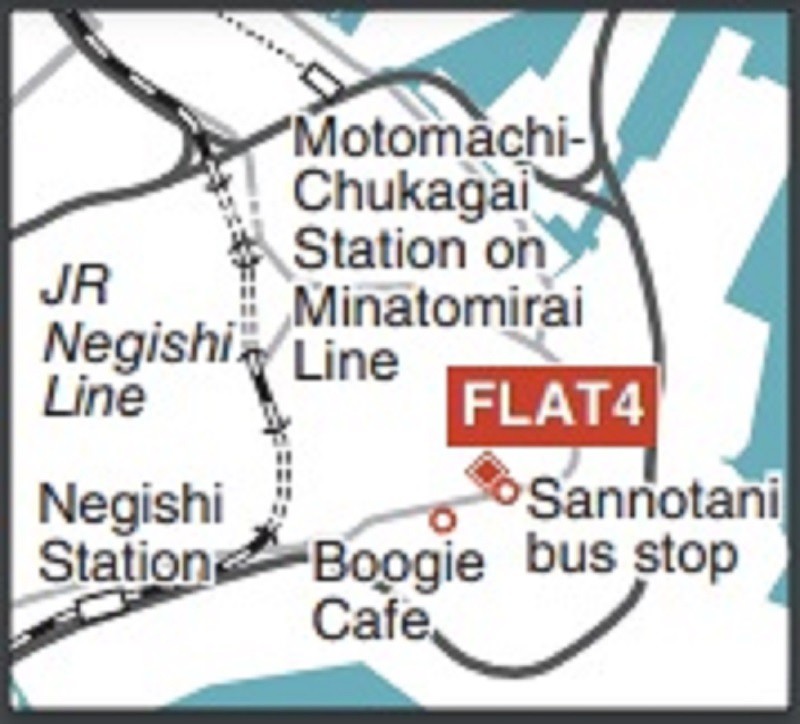
FLAT4
Address: 12-4 Honmoku Wada, Naka Ward, Yokohama
Access: Take a Yokohama municipal bus from the Motomachi-Chukagai Station on the Minatomirai Line. From the Sannotani bus stop, it’s a one-minute walk.
Memo: Open from 10 a.m. to 6 p.m. on weekdays and from 10 a.m. to 7 p.m. on weekends and national holidays. The shop also accepts requests for repair and maintenance.
Related Tags
Top Articles in Features
-

Sapporo Snow Festival Opens with 210 Snow and Ice Sculptures at 3 Venues in Hokkaido, Features Huge Dogu
-

Tokyo’s New Record-Breaking Fountain Named ‘Tokyo Aqua Symphony’
-

Tourists Flock to Ice Dome Lodge at Resort in Hokkaido, Japan; Facility Invites Visitors to Sleep on Beds Made of Ice
-

High-Hydration Bread on the Rise, Seeing Increase in Specialty Shops, Recipe Searches
-

Heirs to Kyoto Talent: Craftsman Works to Keep Tradition of ‘Kinran’ Brocade Alive Through Initiatives, New Creations
JN ACCESS RANKING
-

Japan PM Takaichi’s Cabinet Resigns en Masse
-

Japan Institute to Use Domestic Commercial Optical Lattice Clock to Set Japan Standard Time
-

Israeli Ambassador to Japan Speaks about Japan’s Role in the Reconstruction of Gaza
-

Man Infected with Measles Reportedly Dined at Restaurant in Tokyo Station
-

Man Infected with Measles May Have Come in Contact with Many People in Tokyo, Went to Store, Restaurant Around When Symptoms Emerged


